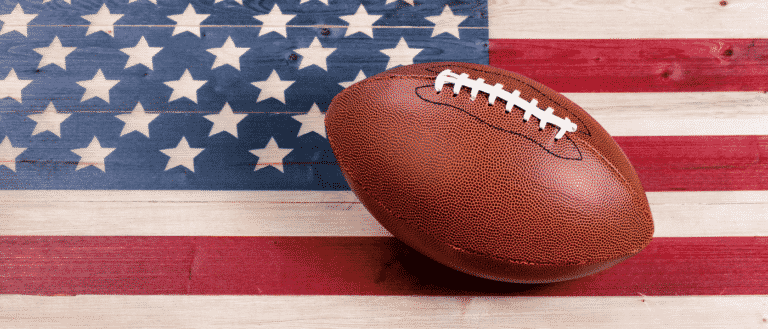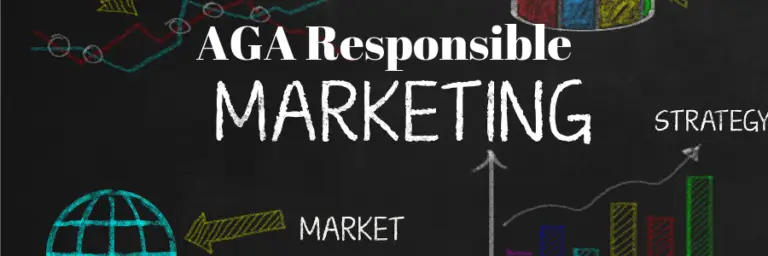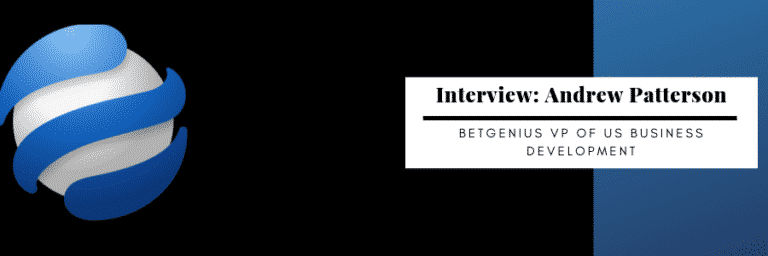Eric Hollreiser Discusses The Lessons Of Black Friday And Poker’s Future

Few people had a better view of poker’s Black Friday than Eric Hollreiser, and few people are better qualified to talk about one of the most pivotal moments in online poker history and its ongoing impacts.
Hollreiser officially joined PokerStars when the industry was in the throes of Black Friday. As such, his tenure as PokerStars Corporate Communications Director began with the scenario every communications department hopes to avoid, crisis management.
Eight and a half years after Black Friday, Hollreiser departed PokerStars and started ACE Hollreiser, “a marketing communications consultancy specializing in regulatory entrepreneurship and empowering disruptive companies.”
As Hollreiser described it, “People who are finding those opportunities to have a differentiation through regulation or have a differentiation that gets boosted or protected by regulation.” And that has led to exciting projects from FinTech to crypto to esports to cannabis.
Betting USA recently spoke with Hollreiser to get his thoughts on the and where the online poker industry is headed.
The Political Climate Leading to Black Friday
Hollreiser: Politics, on the one hand, is predictable. But it’s predictable in its unpredictability. When I think about the efforts made to regulate online poker back in 2010-2011, mainly by PokerStars, the idea was a federal solution. And that would have been the cleanest, best, most logical solution.
I think there was reason to be optimistic. , and we were putting tons of money in, and Full Tilt was putting money in. The Poker Players Alliance (PPA) was active and had several members. It wasn’t just PokerStars.
I wasn’t really a part of the process in years before Black Friday, so I can’t speak from the personal experience and say, “I know what we did wrong,” but with hindsight, you have to question whether you were dealing with the right people. Are you backing the right horses politically?
What the politicians could have done differently is, in some ways, very clear, right? I’ve been running these polls on Twitter asking, “what was the government trying to achieve?” Interestingly in that poll, the one that got the least votes was protecting players. Protecting consumers, which is arguably the number one thing that government should be doing. And the most jaded called it a money-grab.
We were an unusual industry in that we were saying, yes, regulate us. Yes, tax us. Yes. We know that’s going to cut our margins in the short term, but it will provide predictability, long-term stability, and investment confidence. So, we were willing to do that.
So, if you think about it as a money grab, as a government just trying to cash in, had they regulated in 2011 instead of prosecuted, think of the tax revenue that would have come in over the past decade. Think of the reduced pain and suffering of millions of poker players. Think of the lost hours of work, enjoyment, and profit.
You also had entrenched interests that were heavily funding and lobbying against online poker, surely because, in their mind, it was bad for their business. So again, in hindsight, did we ever have the muscle to fight that? And the answer is, I think, no. Could we have been more effective? Absolutely.
But that, that too, would have required something that we still, as an industry, aren’t good at—having a clear voice and having some sense of working together toward a common goal.
I don’t know if it’s just the gaming industry, it’s hard in any industry, but I think we could have been much more effective at getting the federal solution more widely exposed and potentially done. And had we done that, perhaps it would have been a different political calculation by the Southern District in New York before they prosecuted the industry.
DOJ Actions Were a Dereliction of Duty
Betting USA: It feels like the DOJ took their money and did their prosecutions but then left the industry in even worse shape than it was before Black Friday. They didn’t do anything to promote its regulation, which is where there is perhaps a missed opportunity. There could have been some crossover with a few congressional members of the regulation mind. You’re going to do this now. Okay, why don’t we set it up so that these companies have a route to what they’ve been looking for all along?
Hollreiser: I’d go so far as to say it was a dereliction of duty. That duty is a duty of care to consumers. A duty of fiscal responsibility in not seeing this enormous amount of revenue that was being generated. A dereliction of federal responsibility for those reasons.
And it also pushed the responsibility to the States, which is the mess that we’re still in.
It’s continued to be challenging because, for all of the intellectual, legal, and economic realities and almost inarguable logic behind why we should regulate online poker, the entrenched interests were opposed. And because of Black Friday, they had a bigger, more powerful club to hit us with. We were the bad guys, and it was easy to say “illegal” and “indictments” and not talk about the substance of regulation. Because when you talk about the substance, it’s just logical.
What Ifs
Betting USA: What if Black Friday never occurred? Black Friday happened in April 2011, and the OLC opinion said the Wire Act only applied to sports betting, allowing states to legalize intrastate online gambling that comes out later that year.
Hollreiser: I’m not big on conspiracy theories, but there’s no reason why that OLC opinion couldn’t have come out sooner. And I don’t think it was an accident that it came out the Friday afternoon before Christmas. They wanted that buried. It’s not that it exonerated PokerStars, but it would have made the DOJ narrative a lot weaker if the Wire Act misinterpretation had already been out because it was our [PokerStars] narrative. It was why we had legal opinions saying it was okay to be operating in the US.
And when you think back just before Black Friday, I’m pretty sure it was March, it may have even been early April when PokerStars announced the deal with Steve Wynn. That’s a real what if? A land-based guy with power, with political sway, with a great name and brand (at the time). What could we have done?
I’m not conspiratorial enough to think that, but I wouldn’t absolutely dismiss that it was because Steve Wynn was going to be a supporter and that put Sheldon and others all the more on the offensive to pressure the government about online poker companies.
If you think about how other governments in the rest of the world dealt with online poker and what was successful as other countries regulated the industry, you see some good corollaries. When we talked to regulators and legislators that were considering legislation, the question always came up, well, how can we let you operate in the future? You’ve been operating here, in whatever way, gray, black, whatever you want to call it.
We always had legal opinions that defended our operations in these jurisdictions. But if you disagreed with the legal arguments, you couldn’t really disagree with the consumer protections and tax revenues gained by regulating the market and working with the existing, legitimate operators who the players wanted in their market.
We saw success in dealing with regulators and legislators in other jurisdictions, even while operating in the legal uncertainty. Sometimes that led to having to withdraw from the market for a time while the local jurisdiction instituted a licensing regime, and then we could reenter. And we were always the first ones to leave a market as soon as it was required. And we were always the first ones to return because we had our sh*t together – we were prepared. We had our licensing applications ready and were ready to comply with local regulations and technical requirements, which made regulators really comfortable.
So if we think about it, had we been able to do that in America in the first quarter of 2011, even if we had withdrawn, that would have been another kind of logical way to create some level playing field if the land-based operators felt it was unfair.
Let’s be clear: nothing good came from Black Friday. The PokerStars founders effectively had to leave the company in order to bring PokerStars back to America. I was at PokerStars through multiple owners, multiple management teams, multiple CEOs, and I can tell you we took a very different approach when we were a poker-only company trying to drive online poker in America, then when we were a poker, casino, and sports betting company, trying to push regulation of online gambling in America. And I don’t think that the latter approach benefited poker players.
And broadly speaking, it’s interesting how people think of online poker compared to, say, Uber or Airbnb. There is a very similar argument to be made that those guys are operating illegally because they’re not licensed to do what other entrenched operators are licensed to do. Uber has had trouble everywhere. Airbnb has had some trouble, but you don’t think about those companies with the same moralistic, bad reputation that online poker got tarred with. I think that speaks much more to the kind of industry it is.
Where Does Poker Go from Here?
Betting USA: How do you see the poker industry evolving?
Hollreiser: I worry about poker online, and I’ll tell you why. Online poker is not the most profitable vertical of an integrated online gambling company. You’re either running it as a loss leader and as a way to bring traffic only to try to siphon it off to other verticals, or it’s just one of those things you “have to have” from a competition standpoint.
I worry about the investment in innovation. I worry about the cost of regulation in the United States because poker regulation is different from sports betting regulation. It’s different from the regulation of casino games. It’s not a house-banked game where you can just tax Gross Gaming Revenue. It requires some explanation for poker players that makes total sense, but for non-poker players, it’s really difficult to understand.
I think we got good at it when we were active in 2013-2015 in America, but it was too soon after Black Friday. People just didn’t want to hear from PokerStars. So we had that window after Black Friday and before PASPA, where you could only really talk about poker. But once they saw the gold in the hills of sports betting, the legislative education focus shifted to sports. I see the consolidation now, and I worry that poker will become the stepchild in the worst kind of ways. It won’t get the attention. It won’t get the best people on it. It won’t get the resources for innovation. And it won’t change and evolve in the ways online poker has to change to compete with other forms of online gambling and other forms of gaming and online entertainment.
I don’t worry about poker as a game. I think the game will live on. It will evolve, and it will continue. But the fact that, with the exception of GG Poker, there aren’t major poker-only companies that are working hard to pursue a poker-first agenda concerns me.
Online Poker Becomes the Cardroom of Old
Betting USA: If I understand you correctly, you’re worried that online poker is going to morph into what land-based poker used to be, which is it’s in the back corner of the casino. It’s out of the way, and hopefully, while walking through the casino, players will stop at a slot machine or craps tables.
Hollreiser: Well, that works in land-based casinos, right? They keep poker in that back corner so that players have to walk through all the glitz and glamor and machines, and guess what, the vast majority of them will spend money in the casino. Having poker in your online portfolio of games makes a lot of sense in the same way having a good poker room in your casino makes a lot of sense. It drives traffic.
The Success of Online Poker Comes Down to Liquidity
Betting USA: What about the fractured markets created by regulation after Black Friday? How does that play into poker’s future?
Hollreiser: That speaks to that other part of why I’m concerned about poker in America, and that is the need for shared liquidity. With the major companies so heavily invested in sports betting – which is much bigger and much more profitable — Who’s going to spend the time, effort, and energy to educate people, and by people, I mean regulators and politicians, about why smart online poker regulation is important, and that the rewards of shared liquidity are much higher than the perceived risks, and guess what? There aren’t a whole lot of risks in shared liquidity, which has been proven around the world.
Smaller poker markets closer to some of the state experiences have been successful when they’re part of the global pool. Smaller markets that have closed liquidity are not as successful. And as a result, big companies are not going to invest as much in poker in, say, France, because it’s too hard to make money.
Betting USA: What are the alternatives to shared liquidity?
Hollreiser: There are a couple of ways that I think about that. None of which is as good for the marketplace as shared liquidity.
One is greater integration of live and online, as well as a greater focus on innovation. I think those two can go hand in hand and should go hand in hand. So you’ve got live poker rooms in partnerships with online poker rooms that are doing really interesting and engaging things that drive you online and bring traffic and revenue to both.
And that live traffic, whether you’re a casino, a poker room, or some future live experience where you can sit down and play poker, with all the social goodness and entertainment value that is specific to a live event. I think then you could see some really interesting things. PokerStars had lots of plans, and there’ve been several things that we’ve done to find that integration. And I think what evolves from how we integrate the live and online experience will be super exciting.
Now I’m biased because I really believe in the future of metaverse. And I think we’re going to have an online persona and a real-life persona that work hand in hand in many realms. And I think poker is a great opportunity to combine those two things to a certain extent. There are lots of complications in that, but I think that could be really, really exciting.
And when we talk about coronavirus, it’s always the silver linings, but the online poker boom that we’ve seen because of coronavirus has been great. It’s reintroduced people back to the game. It’s been introducing people to the game. It’s reminding people what joy they can get out of spending so many hours clicking a button, and it’s also hopefully been a sea change in how people feel about spending time online and finding new ways to enjoy that time and not have it be as much a burden. Therefore the interest and investment in improving that experience are going to be great.
PokerStars led the way as a loss leader in VR, and I think some version of VR for poker is going to catch on.







